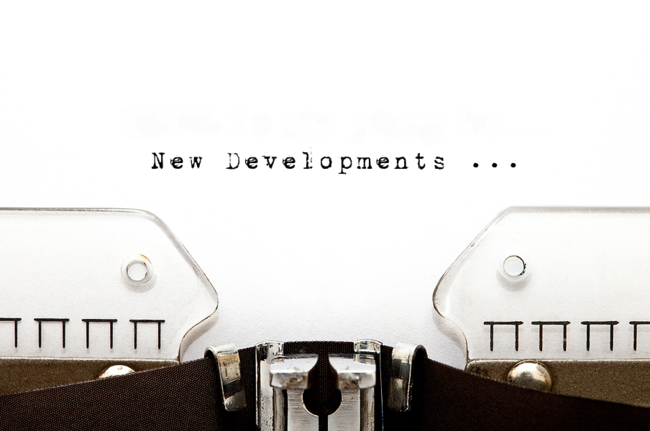New Developments on the New York Workers’ Compensation Scene

From new injury statistics and assessment rates to changes in legislation surrounding scaffolding requirements and workers’ compensation treatment, there’s a lot happening with New York workers’ compensation.
New York Lawmakers Introduce Workers’ Compensation Bills
If they pass, several new bills could impact the New York’s workers’ compensation system.
According to Business Insurance, two recently introduced bills would allow additional types of treatment in workers’ compensation cases. Assembly Bill 1014 would allow workers’ compensation recipients to participate in telehealth services for psychological treatment and counseling, whereas Assembly Bill 1204 would allow them to receive care from occupational therapy assistants and physical therapy assistants.
Another Business Insurance article explains that New York lawmakers have also introduced Senate Bill 1488, which would prohibit businesses from retaliating against workers who file workers’ compensation claims. Businesses would be disallowed from contacting or threatening to contact U.S. immigration authorities over the worker’s immigration status or the immigration status of the worker’s household members. Employers who violate the law could face fines of $500 to $2,000.
Additionally, Business Insurance says New York Assembly Bill 571 would require notification when a new claims representative is assigned to a case or when it’s determined that a personal claims representative is no longer needed.
Whether these bills will pass into law remains to be seen, but employers and workers’ compensation professionals should watch for changes to legislation.
New Assessment Rate Goes into Effect
The New York State Workers’ Compensation Board has announced the 2023 assessment rate for employers. As of January 1, 2023, the assessment rate is 9.8% of the standard premium or premium equivalent. This is down from the assessment rate of 10.2% in 2022.
Injured Workers Could Pursue Litigation
Senate Bill 9149 would amend New York’s workers’ compensation law regarding collateral estoppel – a legal doctrine that says a party cannot relitigate an issue. According to Business Insurance, the law (which has passed both the New York State Senate and the New York State Assembly) would grant injured workers the right to pursue litigation in the court system.
New York’s 2021 Injury Incident Rate Is Lower Than the National Average
The U.S. Bureau of Labor Statistics has released the employer-reported workplace injury and illness figures for 2021. In New York, private industry employers reported 125,500 nonfatal workplace injuries. This is an incident rate of 2.2 cases per 100 full-time equivalent workers. The national incident rate for 2021 was 2.7.
Out of the 125,500 injuries, 81,600 were “DART” cases involving days away from work, a job transfer, or a restriction. The education and health services sector saw a decrease in total recordable cases and DART cases, whereas the trade, transportation, and utilities, manufacturing, and professional and business services sectors saw increases.
Fall Protection Keeps Its Spot as Most Frequently Cited Violation
The National Safety Council (NSC) reports that OSHA presented the top 10 most frequently cited workplace safety standards for fiscal year 2022 at the 2022 NSC Safety Congress & Expo. Unsurprisingly, fall protection was in the number-one spot again, with 5,260 violations.
The top violations were:
Fall Protection – General Requirements (1926.501): 5,260 violations
Hazard Communication (1910.1200): 2,424 violations
Respiratory Protection (1910.134): 2,185 violations
Ladders (1926.1053): 2,143 violations
Scaffolding (1926.451): 2,058 violations
Lockout/Tagout (1910.147): 1,977 violations
Powered Industrial Trucks (1910.178): 1,749 violations
Fall Protection – Training Requirements (1926.503): 1,556 violations
Personal Protective and Lifesaving Equipment – Eye and Face Protection (1926.102): 1,401 violations
Machine Guarding (1910.212): 1,370 violations
New Registration Requirements for New York’s Scaffolding Law
Section 240 of the New York State Labor Law, commonly called the Scaffolding Law, requires construction owners to provide scaffolding and other safety measures. According to Mondaq, Labor Law Section 240-i was enacted recently and will create registration requirements for contractors and subcontractors who are bidding on public contracts or performing work on covered private projects.
By December 30, 2023, these contractors and subcontractors will need to register with the Department of Labor Bureau of Public Works. As part of the process, contractors will have to answer questions and submit documents related to prevailing wages and worker protection. Once approved, contractors will receive a certificate of registration valid for two years.
Take Control of Your Workers’ Compensation Program
The New York workers’ compensation landscape is always evolving, but New York employers can take proactive steps to control workers’ compensation claims and costs. BNC can help. Learn more.







